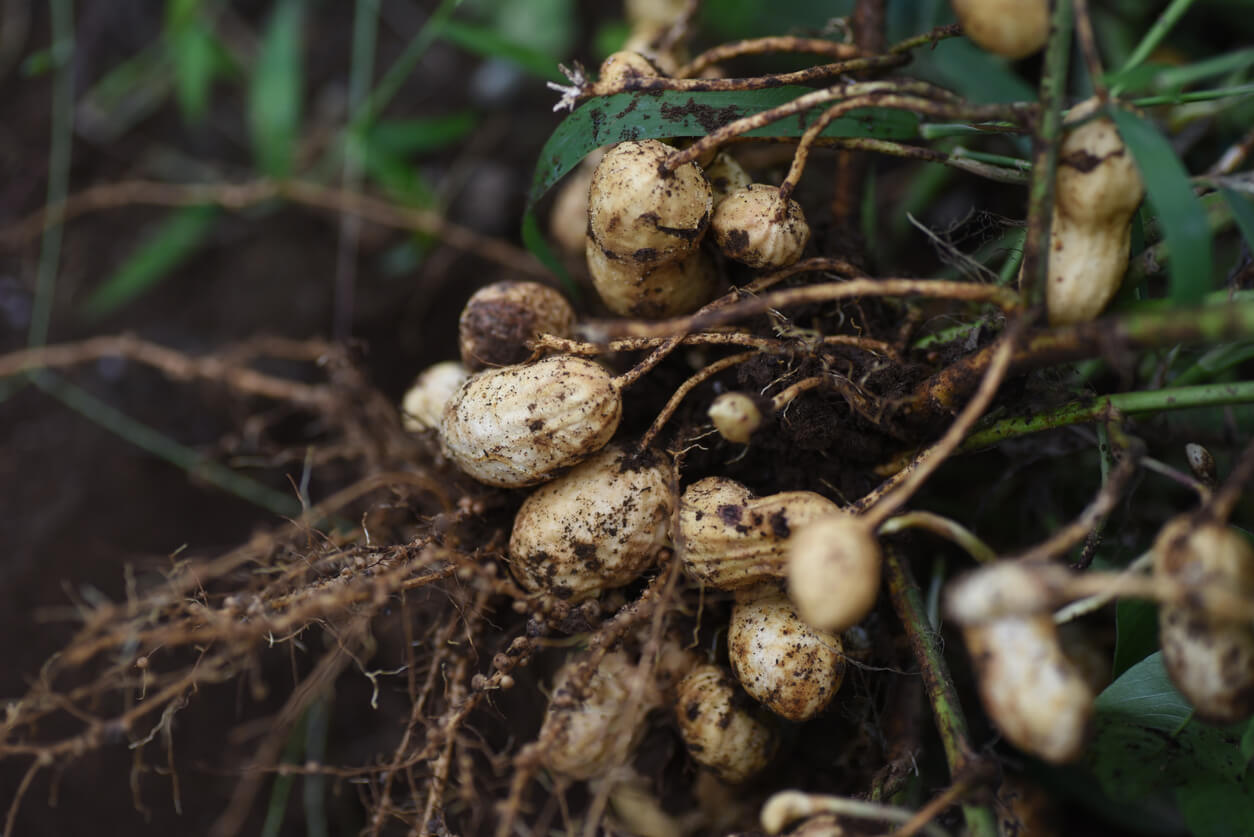A few years ago, Bibi struggled to get her kids to go to school. Even when the mother of four could get them to class, they would leave early. They were hungry.
“Before the inception of the school feeding project, I used to be the one putting pressure on the children before they go to school. Sometimes they leave the house under the guise of going to school but rather, they will be loitering in the community. Even when they accept to go to school, they return back home before the school officially closes for the day,” she said.
In 2021, a research project started in their village in Northern Ghana, a study to evaluate the effectiveness of a peanut-based school meal. With more structure to the school day and a guaranteed meal on the way, the kids’ attitude changed.
“Now, because of the feeding project, no one tells the children to go to school in the morning. When they wake up in the morning, they will be shouting “mama hurry up, I want to go to school. It will soon be time for us to take our meals.”
Bibi isn’t alone. In schools participating in the project, attendance increased 70 percent over the previous year, and the change was even more pronounced for girls.

The improvement in attendance was a tangential benefit of the research project, which provided a daily meal to around 800 kids for a full school year to see how the nutritional content of the meal affects their learning. Some kids received a peanut-based meal, some received a soy-blend and some received traditional porridge (though the project did add micro- nutrients even to this control-group food).
The work was funded through a unique collaboration between USAID, a private company and a national commodity board which came together to provide research dollars for Project Peanut Butter to develop, produce and test the peanut meals. (The Peanut Innovation Lab contributed $500,000, Birdsong Peanuts spent $100,000 and another $100,000 came from the National (U.S.) Peanut Board, a research, marketing and promotion organization supported by the 7,000 American peanut farmers.)
To create and test the peanut-based product, Project Peanut Butter worked closely with Ghanaian partners – the Department of Human Nutrition and University of Ghana.
In September 2021, the project started in six primary schools in the Mion District. At the time, the schools were not providing any sort of meal to the students.
While early results show that kids who received a daily peanut-based meal processed information more quickly and accurately than kids who ate a traditional porridge, headmasters, teachers and community members anecdotally said the meal gave structure to the day, making overall learning more productive.

During the months of the school feeding program, attendance soared by 70 percent, but the impact was greater among girls. While school rolls swelled with both boys and girls, enrollment among girls grew faster and girls attended more days.
For example, the average boy attended school 5.6 additional days during the year of the project, while the average girl was in class 9.3 more days than the year before.
Overall, attendance improved from 76% to 85%.
Bibi saw this with her own children, who were more likely to stay and learn all day.
“They stay at school until it is time for them to close for the day before they return home. This makes me happy as a parent,” she said.




